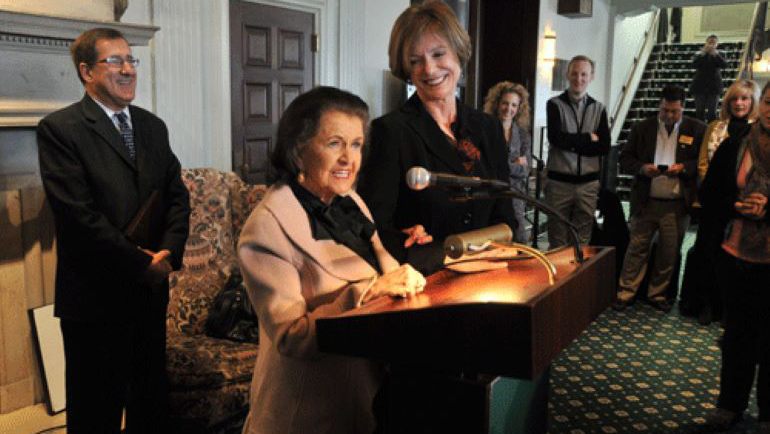SEED Wayne Fellowship supports sustainable Detroit food systems
Neighborhood food programs have shown they can promote community, sustainability and economic development—all of which are goals of SEED Wayne, a program at Wayne State University that works to build sustainable and just food systems while promoting healthy eating around Detroit.
Kami Pothukuchi, associate professor of urban planning and founder of SEED Wayne, is taking things a step further by merging a variety of disciplines around healthy food and neighborhood outreach. Her idea, the SEED Wayne Fellowship in Community Food Systems Planning, was implemented in January 2016 and has two components: a course entitled Cities and Food, and an internship that pairs graduate students with a local community organization.
“The class is meant to be an introduction to concepts related to food security and food justice,” said Pothukuchi, “and the internship is a way to become steeped in a particular project, in a particular neighborhood, with a deliverable that is helping address a need identified by a community partner.”
The W.K. Kellogg Foundation funded the program with a $100,000 grant that allows students and community members to investigate urban food issues in diverse neighborhoods throughout Detroit. The Ford Motor Company Fund also has supported the fellowship program.
Katie Abdilla, a SEED Wayne fellow and a graduate student in the School of Social Work, interned with community members in Detroit’s BanglaTown neighborhood to increase food sovereignty, which is the right to have healthy, culturally appropriate foods and to choose food production methods.
“We thought we were going to work with the Bangladeshi population, but what we found was that the black community there was really underserved,” said Abdilla. “That’s why it’s important to pull from different places, so you can address problems in a more well-rounded way.”
As a social work student, Abdilla is an example of the program’s efforts to reach beyond those studying urban planning.
“Our intent is to bring together students with interests in all of these linkages,” said Pothukuchi. “So business school students look at the economy, public health students might have an interest in community nutrition, education students can be linked to the Detroit Public Schools’ food system, communications students can think about social marketing as a tool to get the word out for organizations, and so on.”
Jason Lindy, a SEED Wayne fellow and an urban planning student, found the participant diversity enlightening and instructive.
“For a city plan to be effective you need to have a lot of different people at the table to really imagine what everyone’s needs are,” said Lindy. “During class there was always a rounded discussion, and it wasn’t just disciplines. There was a mix of genders, races and ages.”
As renewed interest and investment in Detroit continues, Pothukuchi believes urban agriculture and community gardens can provide a path toward addressing some of the city’s longstanding health, education and blight issues.
“People eat healthier when they grow their food,” said Pothukuchi. “Lots are cleaned up and garbage is removed, young people get involved, there are more microhabitats for wildlife, and there’s less impact on the water drainage infrastructure.”
Following an initial year that paired six students with community food organizations, the SEED Wayne fellowship is on a path to engage more partners in metro Detroit. Fifteen students and five community members—including four Detroit Food Policy Council members—are enrolled in this semester’s Cities and Food course, with five students set to complete their internships as of the summer of 2017.
To date, the SEED Wayne fellowship has had more than double the number of participants originally expected. “People are excited about our work,” said Pothukuchi.
(March 8, 2017)


